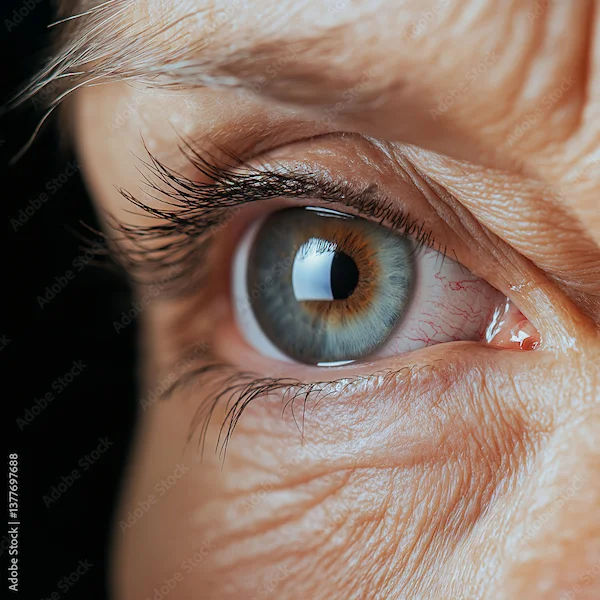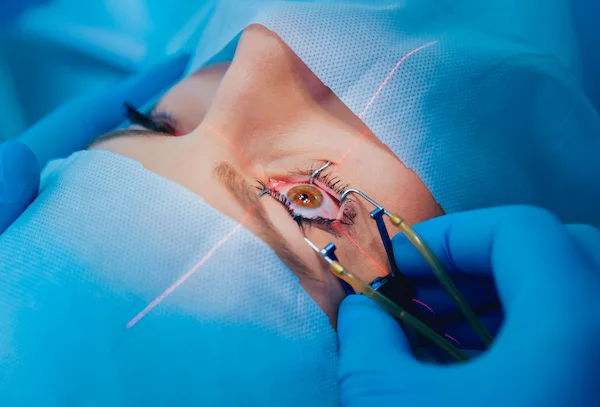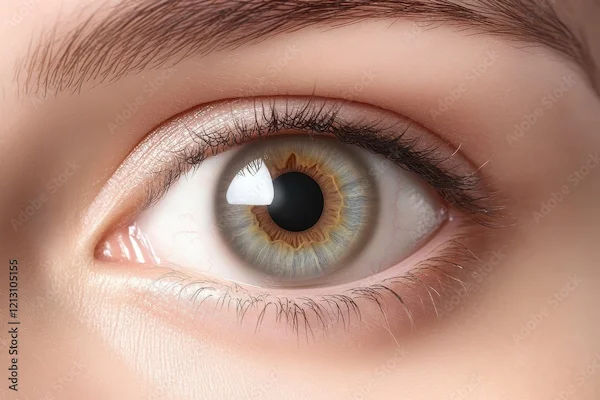Vitreous Detachment Before Cataract Surgery
Understand the implications of vitreous detachment before cataract surgery. Learn how this eye condition may affect your procedure and what precautions are necessary for safe and successful treatment.

Written by
Last updated on 4th Jul, 2025

Introduction
If you or a loved one is preparing for cataract surgery, you may have come across the term "vitreous detachment" and wondered what it means. This condition can sometimes occur before or after cataract surgery, and understanding it can help ease any concerns you may have. In this article, we’ll explain what vitreous detachment is, how it relates to cataract surgery, and what you can do to manage it effectively.
What Is Vitreous Detachment?
The vitreous is a gel-like substance that fills the inside of your eye, helping it maintain its round shape. As we age, this gel naturally shrinks and can pull away from the retina (the light-sensitive layer at the back of the eye). When this happens, it’s called a posterior vitreous detachment (PVD).
PVD is a common, age-related change and is not usually a cause for alarm. However, in some cases, it can lead to complications, especially if it happens before or after cataract surgery.
How Does Vitreous Detachment Affect Cataract Surgery?
Cataract surgery involves removing the cloudy lens of the eye and replacing it with an artificial one. Since the vitreous is located just behind the lens, changes in the vitreous can sometimes influence the surgery or recovery process.
Possible Concerns:
1. Increased Risk of Complications: If the vitreous is already detaching, cataract surgery may slightly increase the risk of the vitreous pulling on the retina, which could lead to a retinal tear or detachment (a more serious condition).
2. Floaters and Visual Disturbances: PVD often causes floaters (tiny specks or cobweb-like shapes in your vision) or flashes of light. These symptoms may become more noticeable after cataract surgery.
However, most people with PVD undergo cataract surgery without any major issues. Your eye surgeon will evaluate your condition before the procedure to minimise risks.
Symptoms of Vitreous Detachment
If you’re experiencing PVD, you may notice:
Floaters: Small dark spots or squiggly lines that drift across your vision.
Flashes of Light: Brief streaks of light, especially in peripheral vision.
A Sudden Increase in Floaters: This could indicate a more serious issue, like a retinal tear.
Consult Top Specialists for Personalised Tips
When to Seek Immediate Help?
If you experience a sudden shower of floaters, a dark curtain over your vision, or persistent flashes, contact an eye specialist immediately. These could be signs of a retinal detachment, which requires urgent treatment.
Causes and Risk Factors
PVD is primarily age-related, but certain factors can increase the likelihood of it happening before cataract surgery:
Age (most common after 50)
Nearsightedness (myopia)
Previous eye trauma or surgery
Inflammation inside the eye
Managing Vitreous Detachment Before Cataract Surgery
If your doctor detects PVD before your cataract surgery, they may take extra precautions to ensure a safe procedure. Here’s what you can do:
1. Get a Comprehensive Eye Exam
Your surgeon will check for signs of retinal tears or other complications. If needed, they may recommend treatment before proceeding with cataract surgery.
2. Monitor Your Symptoms
Keep track of any new floaters or flashes and report them to your doctor.
3. Follow Post-Surgery Care Instructions
After cataract surgery, avoid heavy lifting, bending over, or rubbing your eyes to reduce strain on the vitreous.
4. Stay Hydrated and Maintain a Healthy Diet
Good nutrition supports eye health. Foods rich in antioxidants (leafy greens, berries, fish) can help maintain retinal health.
5. Protect Your Eyes
Wear sunglasses to shield your eyes from UV rays and avoid activities that could cause trauma.
When to Consult a Doctor?
If you’re scheduled for cataract surgery and notice:
A sudden increase in floaters
Flashing lights
Any vision loss
Seek immediate medical attention. Early detection of retinal issues can prevent serious complications.
Conclusion
Vitreous detachment is a natural part of ageing and doesn’t always cause problems. However, if it occurs before cataract surgery, your eye doctor will take necessary precautions to ensure a smooth procedure. By staying informed and monitoring your symptoms, you can protect your vision and enjoy the benefits of cataract surgery safely. If you have concerns about vitreous detachment or cataract surgery, consider booking a consultation with an eye specialist through Apollo 24|7. Early evaluation and expert care can make all the difference in maintaining your eye health.
Consult Top Eye Surgeon
Consult Top Specialists for Personalised Tips

Dr. Rajeev Gupta
Ophthalmologist
24 Years • MBBS, MS (Ophthalmology)
Ghaziabad
Om Eye & Gynae Centre, Ghaziabad
Dr. S Venkateswaran
Ophthalmologist
35 Years • MBBS, PGD (OPTHALMOLOGY)
Tiruvannamalai
Shiva Eye And General Hospital, Tiruvannamalai

Dr. Esha Trideep Kshatriya
Ophthalmologist
3 Years • MBBS , MS (OPHTHALMOLOGY)
Bhuj
KCRC-Blind Peoples Association, Bhuj

Dr. Balakrishna Balaka
Ophthalmologist
6 Years • MBBS, MS Ophthalmology
Visakhapatnam
Balakrishna eye clinic, Visakhapatnam

Dr. Chintan Dedhia
Ophthalmologist
10 Years • MBBS , MS (Ophthalmology), DNB (Ophthalmology), FLVPEI(Retina & Vitreous)
Mumbai
Shree Aadinath Eye & Dental Care Superspeciality Retina Clinic, Mumbai
Consult Top Eye Surgeon

Dr. Rajeev Gupta
Ophthalmologist
24 Years • MBBS, MS (Ophthalmology)
Ghaziabad
Om Eye & Gynae Centre, Ghaziabad
Dr. S Venkateswaran
Ophthalmologist
35 Years • MBBS, PGD (OPTHALMOLOGY)
Tiruvannamalai
Shiva Eye And General Hospital, Tiruvannamalai

Dr. Esha Trideep Kshatriya
Ophthalmologist
3 Years • MBBS , MS (OPHTHALMOLOGY)
Bhuj
KCRC-Blind Peoples Association, Bhuj

Dr. Balakrishna Balaka
Ophthalmologist
6 Years • MBBS, MS Ophthalmology
Visakhapatnam
Balakrishna eye clinic, Visakhapatnam

Dr. Chintan Dedhia
Ophthalmologist
10 Years • MBBS , MS (Ophthalmology), DNB (Ophthalmology), FLVPEI(Retina & Vitreous)
Mumbai
Shree Aadinath Eye & Dental Care Superspeciality Retina Clinic, Mumbai




